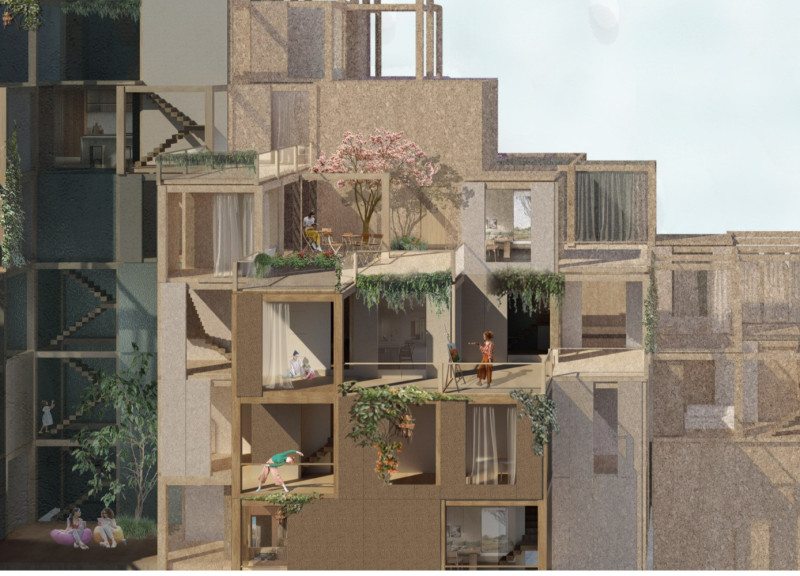5 key facts about this project
The design addresses the housing needs in Toronto by exploring new ways of creating residential spaces. It merges modular construction with a participatory approach, allowing residents to play a role in shaping their homes. This focus on flexibility and customization meets the demands of urban living today, integrating contemporary technology and sustainable methods into the design.
Modularity and Flexibility
The project is built on a system of interlocking panels that act as both structural components and adaptable walls. This modular setup provides residents with the ability to reconfigure their living spaces as needed. A user interface is included in the design, allowing people to interact with the modular elements, which enhances the customization of their homes. This approach makes each space unique and tailored to individual preferences.
Spatial Organization and Community
Thoughtful planning defines the buildable space while considering local environmental conditions, such as sunlight and views. The design uses voxels to create a grid system that helps organize the space in a logical manner. Circulation within the building is managed through multiple cores, ensuring easy access to common areas. This arrangement promotes a sense of community among residents and encourages social interaction.
Sustainability and Design for Disassembly
Sustainability is an important focus, with an emphasis on environmentally friendly building practices. While specific materials are not detailed, the design highlights the use of mass timber, which supports sustainable construction. The project also incorporates Design for Disassembly, allowing walls to be easily reconfigured for future needs. This flexibility ensures that the residential units can adapt over time without significant material waste.
The integration of these ideas fosters a living environment that balances community interaction with personal choice. Each unit accommodates diverse lifestyles while also providing shared spaces that encourage connections among residents. This thoughtful design creates a residential atmosphere that is both functional and inviting, contributing positively to urban life.





















































